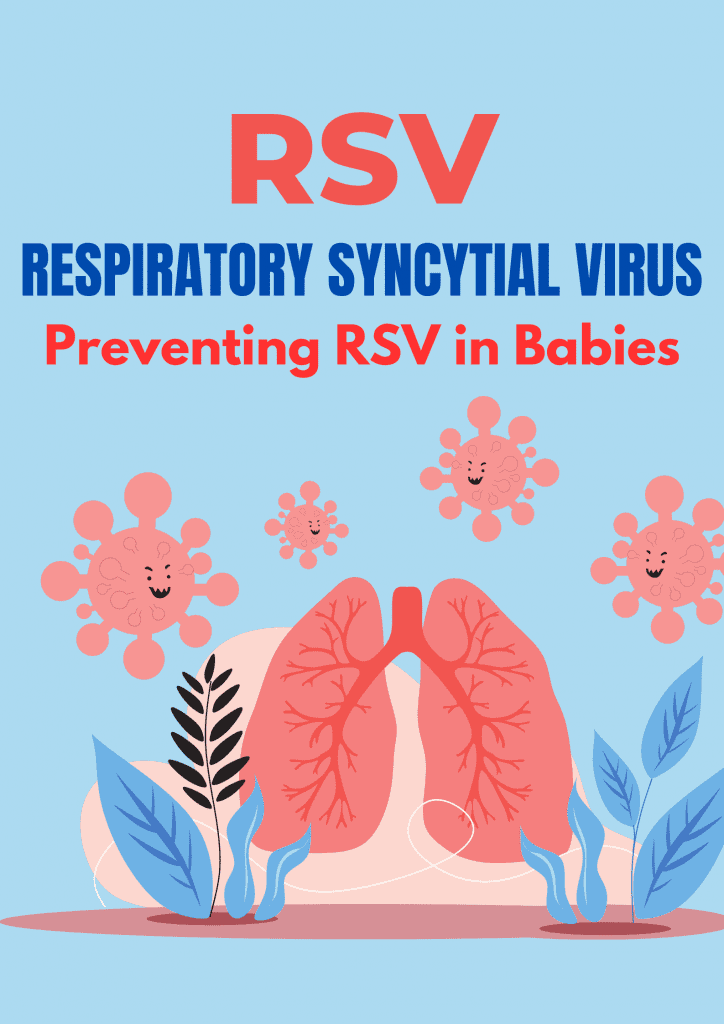Respiratory Syncytial Virus (RSV)
Respiratory Syncytial Virus (RSV), is a respiratory virus that affects people of all ages. However, it can be particularly dangerous for babies and young children, especially those who are premature or have other underlying health conditions. In this article, we will explore what RSV is, how it affects babies, and what can be done to prevent and treat the virus.
What is RSV?
Respiratory Syncytial Virus (RSV) is a contagious virus. It affects the respiratory system. It is most commonly seen during the fall and winter months, and it is the leading cause of bronchiolitis and pneumonia in children under one. RSV is spread by contact with mucus or saliva, from an infected person.
How does RSV affect babies?
In infants and young children, RSV can cause a range of symptoms, from mild cold-like symptoms to severe respiratory distress. Babies may experience fever, cough, runny nose, wheezing, and difficulty breathing. In some cases, RSV can lead to more severe conditions, such as bronchiolitis or pneumonia, which may require hospitalization. Premature infants and babies with underlying health conditions, such as congenital heart disease or chronic lung disease, are at a higher risk of developing severe RSV infections. In these cases, RSV can lead to respiratory failure, which can be life-threatening.
Preventing RSV in babies
There is currently no vaccine for RSV, so prevention is focused on minimizing exposure to the virus. Parents and caregivers are requested to take some steps to decrease the probability of RSV infection in infants, such as:
- Washing hands frequently and thoroughly with soap and water.
- Avoid close contact with sick people, especially those with cold or flu-like symptoms.
- When you are coughing or sneezing, please, cover your nose and mouth.
- Keeping surfaces clean and disinfected.
- Avoiding crowded places during RSV season.
In addition, breastfeeding can help protect babies from RSV and other respiratory infections. Breast milk antibodies will help to boost the immune system to rid of infections.
Treating RSV in babies
There is no specific treatment for RSV, and antibiotics are not effective against viral infections. In most cases, treatment is focused on relieving symptoms and preventing complications. Babies with severe RSV infections may require hospitalization and supportive care, such as oxygen therapy or mechanical ventilation.
Home care for babies with RSV may include:
- Keeping the baby hydrated with plenty of fluids.
- To ease congestion, Use a cool-mist humidifier
- Giving acetaminophen or ibuprofen to relieve fever and discomfort (note: aspirin should not be given to infants).
- Monitoring breathing and seeking medical attention if symptoms worsen.
In conclusion, RSV is a common respiratory virus that can be particularly dangerous for babies and young children. While there is no vaccine or specific treatment for RSV, parents, and caregivers can take steps to prevent infection and minimize the risk of complications. If your baby shows symptoms of RSV, seek medical attention right away to ensure prompt and appropriate care.

